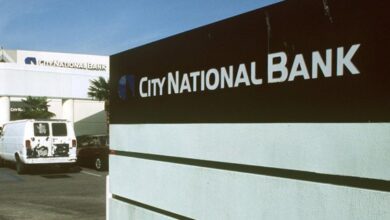Can Anyone Go to a Food Bank? Unlocking the Doors to Food Assistance

Yes, anyone can go to a food bank for assistance with food. Food banks are open to individuals in need, regardless of their circumstances.
Food banks play a vital role in providing support to individuals and families experiencing food insecurity. They offer a variety of food options, including fresh produce, canned goods, and non-perishable items, to help ensure that everyone has access to nutritious meals.
Whether someone is facing financial hardship, unemployment, or any other challenging situation, food banks are there to provide assistance and help alleviate hunger. These organizations often collaborate with local businesses, community organizations, and individuals who donate food or funds to support their efforts. By providing this essential service, food banks contribute to the well-being and overall health of the community.
The Purpose And Mission Of Food Banks
| The Purpose and Mission of Food Banks | |
| Food banks play a pivotal role in providing essential food assistance to those in need, ensuring food security for vulnerable populations. These organizations act as a vital resource for individuals and families facing food insecurity and unable to afford adequate nutrition. | |
| Addressing Basic Needs | At the core of their mission, food banks aim to address the basic needs of individuals and families struggling with hunger. They work tirelessly to collect, store, and distribute food donations from various sources to ensure that those in need have access to nourishing meals. |
| Supporting Community Well-being | Food banks play a vital role in supporting the overall well-being of communities. By providing nutritious food, they contribute to better physical and mental health outcomes for individuals and families in need. |
| Collaboration and Partnerships | Food banks work closely with various organizations, including agricultural producers, retailers, and government agencies, to maximize their impact. These collaborations enable them to secure an ample supply of food and reach a wider population in need. |
| Advocacy and Education | In addition to providing food assistance, food banks often engage in advocacy efforts aimed at raising awareness about hunger and poverty. They educate the public, policymakers, and community leaders about the importance of addressing food insecurity and finding long-term solutions. |
| Food banks serve as a critical safety net for individuals and families struggling to put food on the table. Their purpose and mission revolve around providing essential food assistance, ensuring food security, supporting community well-being, fostering collaboration, and advocating for a hunger-free future. Through these efforts, food banks strive to create a society where everyone has access to nutritious food, regardless of their circumstances. | |
Who Qualifies For Food Bank Assistance
Who qualifies for food bank assistance? Food banks are designed to provide support to individuals and families who may be experiencing food insecurity. Income-based eligibility criteria are typically used to determine who can access these resources. Each food bank has its own guidelines and requirements, but generally, individuals and families with low income are eligible for assistance. This may include those who are unemployed, underemployed, or receiving government assistance. Verification requirements may vary, but individuals may be asked to provide proof of income, such as pay stubs or government benefit statements, as well as identification documents. It’s important to reach out to your local food bank and inquire about their specific eligibility guidelines, as they can provide you with the most accurate and up-to-date information on accessing their services.
Accessing Food Bank Services
Accessing Food Bank Services
Locating the nearest food bank
When in need of food assistance, finding the nearest food bank is the first step. Many food banks have websites that provide information about their locations and services, making it easy to locate the one closest to you. Additionally, you can use online directories or mobile apps specifically designed to help individuals find nearby food banks.
Registration and application process
Once you have identified the nearest food bank, the next step is to register and apply for their services. The registration process typically requires basic information such as your name, address, household size, and income level. Some food banks may also ask for identification or proof of residency. It is important to check the specific requirements of the food bank you are interested in.
Upon completing the registration, you may need to apply for food bank services. This can involve filling out an application form or providing additional information about your household’s food needs. The food bank staff will guide you through the process, ensuring that you receive the support you need.
Dispelling Common Misconceptions
Can Anyone Go to a Food Bank
Dispelling Common Misconceptions
Addressing the belief that food banks are only for the homeless:
Many people mistakenly believe that food banks are exclusively dedicated to aiding the homeless population. However, this misconception fails to acknowledge the diverse range of individuals who may require food assistance. Food banks aim to support anyone who is facing food insecurity, regardless of their circumstances. It is important to challenge the notion that seeking food assistance perpetuates dependency. In reality, individuals and families can face unexpected financial hardships that may lead to food insecurity, and food banks provide temporary relief during these challenging times.
Food banks serve as an essential resource for those who have lost their jobs, experienced a medical crisis, or face other economic constraints. They offer nutritious food options to individuals and families who struggle to afford an adequate diet. By dispelling the misconception that food banks are solely for the homeless, we can ensure that anyone who needs support can access it without shame or judgment.
Promoting Inclusivity And Dignity
Food banks play a crucial role in our society by offering support to individuals and families experiencing food insecurity. Creating welcoming and accessible environments is of paramount importance to ensure that everyone feels comfortable seeking assistance. Food banks strive to provide a wide variety of nutritious options to cater to different dietary needs and cultural preferences. By offering diverse food choices, they aim to serve the community in a respectful and inclusive manner, acknowledging that people have different tastes and dietary restrictions.
The emphasis is on providing a dignified experience to recipients. Food banks work towards eradicating any potential stigma associated with seeking help. They make it a priority to establish an environment that encourages individuals to access resources without hesitation or shame. Operating on a non-judgmental and compassionate basis, food banks maintain confidentiality and respect the privacy of those in need. Their goal is to ensure that anyone facing food insecurity can access the necessary support without any barriers or prejudice.
Enhancing Public Awareness And Education
Can Anyone Go to a Food Bank
Community outreach and advocacy efforts are crucial in raising awareness about the importance of food security. By engaging with local communities, food banks can reach a wider audience and educate them about the services they provide. Community outreach programs such as distributing flyers, organizing food drives, and conducting informational sessions can help inform the public about the availability and accessibility of food banks.
Advocacy efforts play a significant role in ensuring that food banks receive the support they need to serve individuals and families facing food insecurity. By collaborating with government agencies, non-profit organizations, and local businesses, food banks can amplify their message and push for policies that promote food security and reduce hunger in the community.
Through these community outreach and advocacy efforts, it is possible to increase public awareness and understanding of the role food banks play in tackling food insecurity. By dispelling misconceptions and providing accurate information, more people can realize that anyone can access a food bank if they are experiencing financial hardship and need assistance with obtaining nutritious food.
Partnering With Local Organizations
Partnering with local organizations is crucial for the success of food banks. Collaboration with food suppliers and retailers is one way to ensure a steady supply of food donations. By working together, food banks can establish relationships with suppliers to receive surplus food that would otherwise go to waste. Furthermore, engaging with community support networks allows food banks to reach a wider audience and receive additional donations. These networks can include churches, schools, and non-profit organizations, which can help spread the word about the food bank and encourage people to donate. Through these partnerships, food banks can expand their reach and ensure that anyone in need can access their services.
Credit: www.wikihow.com
Government Initiatives And Policies
Government Initiatives and Policies
Legislative actions to combat food insecurity:
Expanding and improving existing food assistance programs:
- Increasing budgetary allocations to food assistance programs
- Streamlining application and enrollment processes
- Enhancing outreach efforts to increase program participation
- Introducing innovative solutions like mobile food banks and virtual pantries
- Partnering with local organizations and businesses to ensure food availability
By taking effective legislative actions, governments address the pressing issue of food insecurity. They allocate substantial budgets to strengthen food assistance programs, making them more accessible to individuals in need. Streamlining the application and enrollment processes ensures efficiency, while enhancing outreach efforts encourages increased program participation. Introducing innovative solutions, such as mobile food banks and virtual pantries, cater to the evolving needs of the community. Collaborating with local organizations, businesses, and volunteers ensures a more extensive reach and availability of food resources. These government initiatives play a vital role in combating food insecurity and ensuring that food banks are accessible to anyone in need.
Harnessing The Power Of Volunteers And Donations
Can anyone go to a food bank? Harnessing the power of volunteers and donations is crucial for the success of food banks. Mobilizing volunteer networks is essential to ensure that they have enough manpower to operate efficiently. Volunteers play a significant role in sorting and distributing food, as well as assisting with administrative tasks. Encouraging food and monetary contributions is equally important as it allows food banks to provide a wide variety of nutritious options to those in need.
Frequently Asked Questions Of Can Anyone Go To A Food Bank
Can Anyone Go To A Food Bank In Times Of Need?
Yes, anyone facing food insecurity can go to a food bank to receive assistance and support. Food banks are designed to help individuals and families who are struggling to afford and access nutritious food. These organizations understand the importance of providing a safety net for those in need, and they welcome anyone who requires their services.
How Can I Find A Food Bank Near Me?
Finding a food bank near you is easy. You can start by searching online or using mobile apps that provide information on local food banks. Additionally, reach out to local community centers, churches, or social service organizations for referrals. They can connect you with the nearest food bank or provide valuable resources to help you locate one.
What Documents Do I Need To Bring To A Food Bank?
While requirements may vary, most food banks typically ask for some form of identification and proof of address. This can include your driver’s license, utility bill, or a lease agreement. It’s always a good idea to contact your local food bank directly to understand their specific requirements, ensuring you have the necessary documents to receive assistance.
Conclusion
Food banks provide a lifeline to individuals and families facing food insecurity. Regardless of one’s situation, anyone can access a food bank for assistance. They offer vital support by providing nourishing food options, helping alleviate hunger, and promoting community solidarity.
As we navigate these challenging times, let’s remember that food banks are here to help those in need, offering a helping hand when it’s needed most.







